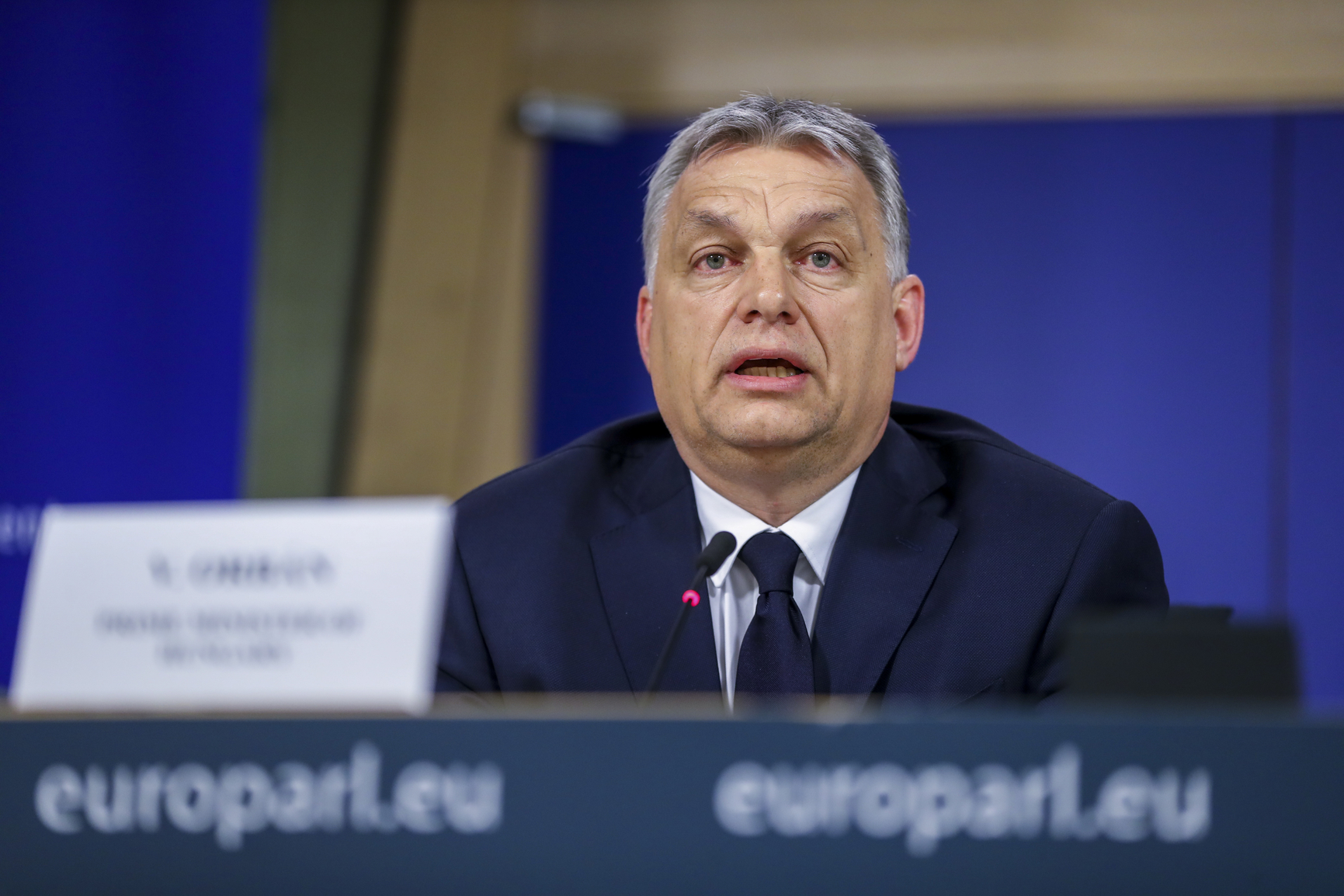Commission to trigger the rule of law mechanism against Hungary: Which funds can be cut and when will first sanctions come? Key facts at a glance

On Tuesday, EU Commission President Ursula von der Leyen announced that the so-called rule of law mechanism would be triggered against Hungary. For the first time, EU payments to a member state could be withheld due to rule of law violations. But what are the procedural hurdles? Which funds are affected? And what do the Hungarian elections have to do with it?
What are the next steps?
So far, the Commission has only announced to trigger the rule of law mechanism against Hungary. In order to officially launch the sanctions procedure, it must now send an official notification to the Hungarian government, explaining the decision in detail. This is expected to happen after the Commission’s next college meeting which will take place at the end of April. After that, there will be a lengthy exchange of letters between the Commission and the Hungarian side. Orbán’s government will be allowed to respond to the allegations. If the response fails to address the Commission’s concerns, the Commission will make a proposal on the amount of suspensions. On this too, the Hungarian government will be allowed to comment. The Commission must then submit the final proposal to the Council. If there is a qualified majority among the Member States (consisting of 15 Member States representing at least 65% of the EU population) in favour of the Commission’s proposal, payments will be suspended.
When can the first sanctions be expected?
Each step in the process is subject to strict deadlines. In the first step, the Hungarian government is given a minimum of one and a maximum of three months to respond to the allegations. It will therefore likely be another six to nine months before any payments are suspended. If the Commission sends the official notification in the next days as announced, the final Council vote can be expected to take place at the end of September at the earliest. However, the Hungarian government will most likely fully exhaust any given deadline in order to delay sanctions as long as possible. Therefore, January 2023 seems to be a more realistic date for the Council vote. Funds could be frozen immediately afterwards.
Which funds can be cut?
The Commission can suspend all payments to Hungary, including agricultural, transport infrastructure or Erasmus grants. According to the regulation, the Commission must decide on the basis of a number of criteria what level of suspension is appropriate in each individual case. The nature, duration, severity and extent of the rule of law violations are decisive. Should the Council come to a different assessment than the Commission, the representatives of the member states are allowed to amend the measures before the vote.
Can Orbán block the entire EU now?
We have to assume that Viktor Orbán will now try everything in his power to prevent or at least delay any suspension of EU funds. In this case he could make use of his veto in decisions requiring a unanimous vote in the Council. Unfortunately, important policy areas such as budgetary or Foreign and Security policy fall under the unanimity requirement. However, he cannot use his veto on everything – Orbán already made clear that he counts on the Polish government’s support in the dispute with Brussels. However, the Polish Law and Justice Party (PiS) does not approve of Orbán’s friendly stance towards Moscow. If Orbán blocks a unified European position on energy sanctions, it would deepen the rift between Warsaw and Budapest, which could also cause movement in the ongoing Article 7 proceedings. Up to now, Hungary and Poland had been protecting each other in the Council, thereby essentially blocking the procedure. If Orbán’s decisions isolate him further, Hungary could lose its voting rights and thus its veto.
What about Poland?
Despite blatant rule of law violations, the Polish government is unlikely to receive a notification from Brussels for now. While the regulation stipulates an independent judiciary as a prerequisite for the proper use of EU funds, the Commission currently concludes that the criteria for triggering the rule of law mechanism are not met in Poland.
Is it true that the Hungarians are punished for the election result by the suspension of EU funds?
No. The rule of law mechanism is directed at the long-term dismantling of the rule of law and the corrupt structures that the Orbán government has created over the past twelve years.
The fact that the mechanism is being triggered now, immediately after the Hungarian elections, is of Viktor Orbán’s own making. At the December 2020 summit of the European Council he and the Polish government threatened to block the entire EU budget in protest of the mechanism. In a compromise – negotiated by the German Council presidency – he was assured that the mechanism would not be used before the parliamentary elections.
The Commission can suspend all payments to Hungary, including agricultural, transport infrastructure or Erasmus grants.

